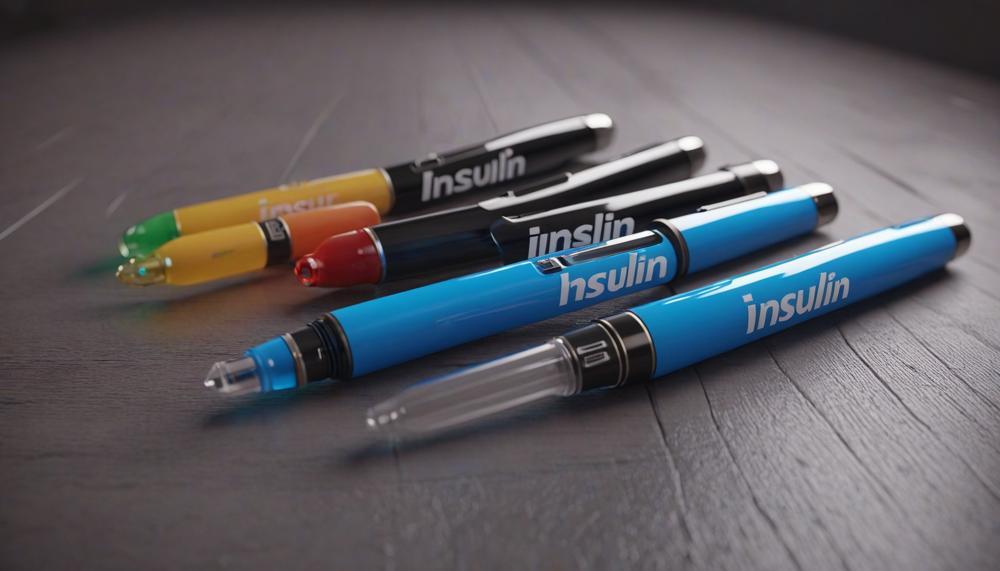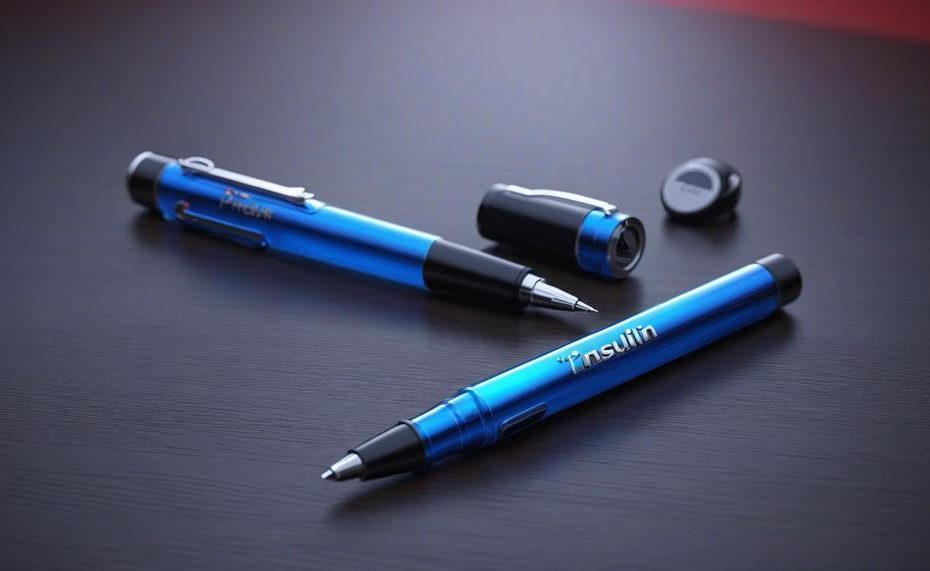Disposing of insulin pens safely is a crucial responsibility for anyone managing diabetes. Improper disposal can pose serious health and environmental risks. It’s not just about getting rid of the pens; it’s about ensuring they don’t harm others or the environment. Here’s how you can do it right:
Safe disposal of insulin pens involves careful handling of both the pens and the needles. Used pens and needles should be placed in a designated sharps container to prevent injury and contamination. For expired insulin, mixing it with substances like coffee grounds before sealing it in a container and throwing it in the trash can make it less appealing to children and pets. It’s also important to remove any personal information from the insulin packaging before disposal to protect your privacy.
Additionally, while insulin pens and needles aren’t recyclable, some autoinjector pens can be returned through mail-back programs. Remember to dispose of any insulin that’s past its recommended usage time or that has been improperly stored. Here are the key points to keep in mind:
- Store and dispose of sharps safely: Always use a proper sharps container for used needles and pens.
- Make expired insulin unappealing: Mix it with coffee grounds or similar materials before sealing and discarding.
- Protect your privacy: Remove personal information from insulin packaging before disposal.
- Understand disposal options: Know that while pens and needles can’t be recycled, some autoinjectors can be mailed back for disposal.
- Follow storage guidelines: Dispose of any insulin that’s expired or improperly stored.
By following these steps, you can ensure that your insulin pens are disposed of safely, protecting both people and the environment. This simple yet essential practice not only keeps you safe but also contributes to a healthier community.
Contents
Is Your Insulin Expired?
Answer: To determine if your insulin is expired and what to do with it, follow these steps:
- Examine the Bottle: Look for any particles, discoloration, or clumps in the insulin. Clear insulin should be completely clear without any floating particles, while cloudy insulin should have an even, milky appearance. Any deviation might indicate that it’s compromised.
- Check the Expiration Date: Never use insulin past its expiration date. This date is usually printed on the bottle, pen, or cartridge.
- Consider the Time Since Opening: Once opened, insulin has a separate expiration timeline. Generally, most insulin vials and pens are good for 28 days at room temperature, but always refer to the manufacturer’s guidelines.
Proper Disposal Steps
| Step | Action | Details |
| 1 | Mix with Coffee Grounds | Mix expired insulin with coffee grounds to make it unattractive to children or pets. |
| 2 | Seal in a Container | Place the mixture in a sealed container before disposing of it in the trash. |
| 3 | Remove Personal Information | Ensure all personal information is removed from the original insulin container. |
| 4 | Use a Sharps Container | Keep used insulin pens and needles in a sharps container and always dispose of them with the cap on. |
| 5 | Mail-Back Programs | Check if autoinjector pens can be sent to mail-back programs for disposal. |
How to Dispose of Expired or Unused Insulin Vials
Proper disposal of expired or unused insulin vials ensures safety and environmental responsibility.
| Step | Action | Details |
| 1 | Prepare the Insulin | Mix with coffee grounds or kitty litter, then seal in a container. |
| 2 | Remove Personal Info | Scratch out or remove personal details from the vial. |
| 3 | Label and Track | Date the vial upon first use; dispose of after 28 days. |
| 4 | Consider Donation | Donate unopened insulin to local health clinics. |
| 5 | Dispose of Sharps | Use a sharps container or mail-back programs for needles and pens. |
| 6 | Follow Safety Measures | Do not use expired or improperly stored insulin. |
Disposing of the Insulin Pen
Proper disposal of insulin pens is essential to ensure safety and protect the environment. Here are the steps to safely dispose of an insulin pen:
| Step | Description | Additional Notes |
| Remove the Needle | Detach the needle from the pen and discard it in a sharps container. | FDA Guidelines on Sharps Disposal |
| Prepare the Pen | Wrap the pen in plastic or newspaper. | This prevents accidental needle sticks or reuse. |
| Dispose of the Pen | Place the wrapped pen in the trash. | Ensure it is securely wrapped. |
For more information on the environmental impact of improper disposal, you can read about the EPA’s guidelines on medical waste.
Other Factors to Consider Besides the Expiration Date
When disposing of insulin pens, it’s not just the expiration date you should consider. Here are other critical factors to ensure safe and responsible disposal:
Storage and Disposal of Sharps
Proper handling of sharps, such as needles and insulin pens, is essential to prevent accidents or misuse. Use a designated sharps container for disposal to ensure they are not a hazard to others.
Mixing with Unattractive Substances
Before disposal, mix the expired insulin with something unattractive, like used coffee grounds or cat litter. This step discourages anyone from using the discarded medication.
Sealed Containers
Place the mixed insulin in a sealed, puncture-proof container. This prevents any leakage or potential harm from accidental contact.
Removal of Personal Information
Ensure all personal information is removed from the original container before disposal. This helps protect your privacy and prevents identity theft.
Donation Options

If the insulin is unused and still within the usable timeframe, consider donating it. Various organizations accept insulin donations for those in need. Research local programs or consult with your healthcare provider for donation options.
Following Storage Guidelines
Adhere to the recommended storage guidelines. Opened vials or cartridges should be disposed of according to the manufacturer’s instructions, even if they are not expired, to avoid using ineffective medication.
Handling Accidents
Be prepared to handle any accidents. Even with precautions, needle-stick injuries can happen. Have a first-aid kit handy and know the protocol for dealing with such injuries.
Environmental Considerations
Always consider the environmental impact. Use eco-friendly disposal methods and participate in take-back programs if available.
Safety Precautions for Your Loved Ones
When disposing of insulin pens, ensuring the safety and well-being of your loved ones requires meticulous attention to several key precautions:
- Use a Sharps Container: Always dispose of used insulin pens and needles in a designated sharps container. This prevents accidental needle sticks and injuries.
- Seal and Label: Ensure the sharps container is properly sealed and clearly labeled. This helps in identifying the contents and ensures safe handling by waste management personnel.
- Mix with Unpleasant Substances: For expired insulin, mix it with substances like coffee grounds or cat litter. This makes it unattractive to children and pets.
- Secure Disposal: Place the mixture in a sealed container before disposing of it in the trash. This prevents leakage and accidental ingestion.
- Remove Personal Information: Before disposing of the insulin pen’s packaging, remove any labels with personal information to protect your privacy.
- Do Not Recycle: Insulin pens cannot be recycled. Dispose of them in the trash, following the precautions above.
- Follow Local Guidelines: Check and follow your local waste disposal regulations for medical sharps and medications. Some areas have specific protocols for the safe disposal of these items.
- Expired Insulin Management: Dispose of any insulin pens or vials that are past their expiration date or have been stored improperly, such as being left out of the refrigerator for too long.
Conclusion
Disposing of insulin pens safely is a vital part of managing diabetes, ensuring both personal safety and environmental protection. The correct disposal process involves a few straightforward steps, which can significantly reduce health risks and environmental hazards.
Firstly, always place used pens and needles in a designated sharps container. This prevents injuries and contamination from exposed needles. If insulin has expired or is no longer needed, mix it with substances like coffee grounds to make it unattractive to children and pets before sealing it in a container for disposal.
Privacy protection is also crucial; ensure you remove any personal information from insulin packaging before discarding it. While most insulin pens and needles cannot be recycled, some autoinjector pens may qualify for mail-back programs, so check for these options.
Proper disposal of insulin involves more than just expired pens. Ensure that any insulin that has been improperly stored or is past its recommended usage period is discarded safely. By following these guidelines, you contribute to a safer and healthier community.





